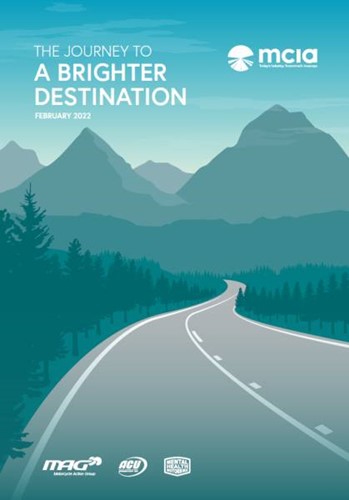A new document from the Motorcycle Industry Association (MCIA) calls for measured and practical solutions to UK Government’s decarbonisation plans.
Supported by the Motorcycle Action Group (MAG), Mental Health Motorbike and the Auto-Cycle Union (ACU), the document seeks recognition of the relatively limited environmental impacts of motorcycles when compared to a petrol/diesel car or even a medium sized electric vehicle.
The Journey to a Brighter Destination highlights how motorcycles provide a congestion-busting and less polluting option to complement sustainable modes, or as an alternative when walking, cycling and public transport may not be a viable option.
MCIA emphasises the benefits to the UK economy and the positive effect on a rider’s mental health and wellbeing, and appeals to the UK Government to avoid a blanket ban on new petrol motorcycles from a selected date, as is the case for the 2030 deadline relating to cars and vans.
 With a potential Government consultation on the phase out of non-zero emission motorcycles and scooters (L-category), which is expected in the coming months, the document is highlighting the technological challenges facing the industry and the current lack of charging infrastructure for motorcycles compared to cars.
With a potential Government consultation on the phase out of non-zero emission motorcycles and scooters (L-category), which is expected in the coming months, the document is highlighting the technological challenges facing the industry and the current lack of charging infrastructure for motorcycles compared to cars.
Tony Campbell, CEO of MCIA, said, “Although we are making significant progress in the lower powered end of the L-Category classification and the role these vehicles can, are, and will play in the Government’s zero emission and future of transport agendas, higher powered motorcycles will need to be treated differently, as they face far greater challenges when it comes to electrification using technologies that are available today.”
A copy of the Journey to a Brighter Destination can be found here.